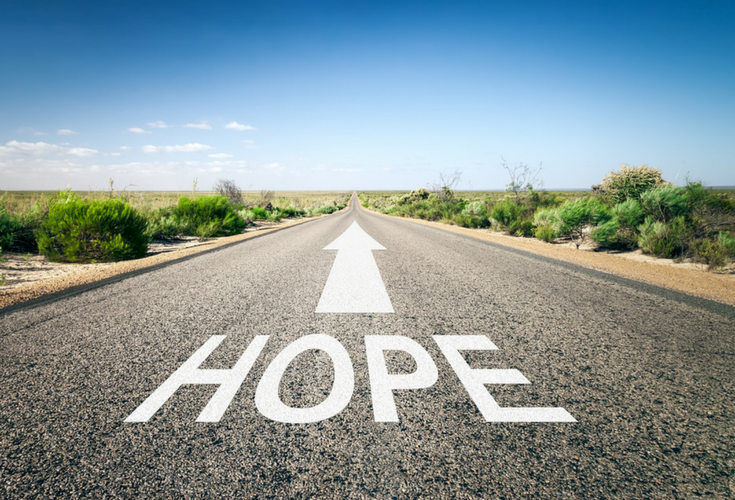
Sometimes people tell themselves, “Others are suffering worse than I am. So who am I to complain?”
It’s not a healthy approach. Because the other person’s suffering — even if it IS worse than yours — doesn’t change the fact your own problems exist.
However, there is a grain of truth in it. You CAN point to things other people have overcome, perhaps worse things than you’re facing now. “Somebody else overcame a worse problem. If they can meet that challenge, I can meet this one.” THAT’S a reasonable thing to think. It’s also hopeful.
A “can do” attitude is what everyone needs to survive in life, and to get to the next stage of personal/material growth, whatever that stage is.
A “can do” attitude is not the same as a “misery loves company” attitude. If you’re comforted by the fact that others are also miserable — or even more miserable — then it implies you have already given up. The unspoken premise is: “Life is a vale of tears. It’s all hopeless anyway. So it’s good to know I’m not the only one”.
The attitude of, “It’s good to know I’m not the only one” flows directly from your distorted, negative belief that it’s all hopeless, anyway. It’s the hopelessness that has to be challenged.
The opposite of hopelessness is confidence in the use of your mind to understand and grasp things, and to figure out how to do things. In our complex and specialized world, it’s equally challenging to know what questions to ask, and whom to ask for help. Or to hire to help you — the doctor, the kitchen designer, the auto mechanic, the financial specialist.
We hear a lot about “hope” to the point where it’s a cliche. But what gives rise to hope? What’s the hope for mankind, and what’s the hope for your own personal, individual life? The answers are the same: Reason, thought, confidence, self-esteem, purpose. In short: You have a mind. It’s your job to USE it!
If you’re already in a state of hopelessness or despair, you can’t just snap your fingers into a “can do” mindset of thought and confidence. The challenge is not to get to that point. Prevention is # 1 in mental health. The important thing is to build confidence and a “can do” mindset while you’re still not feeling that badly. If you do get to the point of despair, you’ll definitely need some help planning some baby steps, incrementally, one by one. If you have a “nervous breakdown” and need to bottom out, so be it. Just don’t give up. The good thing about such a situation is that small victories will seem huge. Be patient and compassionate toward yourself, most of all.
The world is full of people who have given up. They’re not in a state of outright despair. They won’t commit suicide, at least overtly. They’ll just let themselves decline, through neglect. Kind of a slow self-destruction. I know people like that in their late teens and 20s as well as in their 60s or 70s. I also see the opposite in both age groups. Age and circumstance are not the most important factors. Mindset IS.
There’s always hope. If you shed the magical thinking and start using the capacity for thinking and rational action you still have, you’ll be amazed at what’s left for you.
Follow Dr. Hurd on Facebook. Search under “Michael Hurd” (Rehoboth Beach DE). Get up-to-the-minute postings, recommended articles and links, and engage in back-and-forth discussion with Dr. Hurd on topics of interest. Also follow Dr. Hurd on Twitter at @MichaelJHurd1, and see drmichaelhurd on Instagram.
